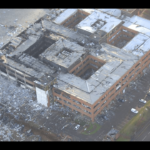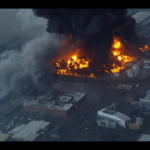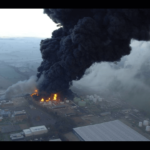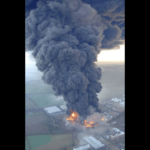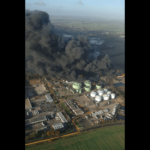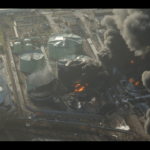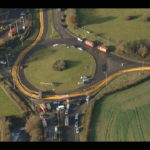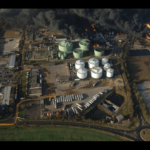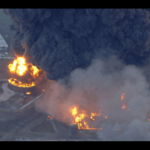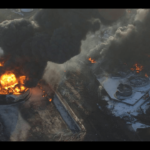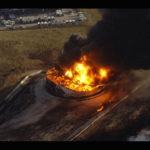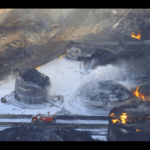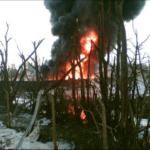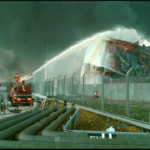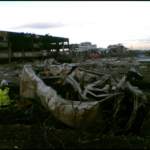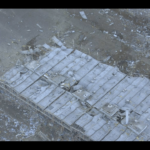Buncefield Incident 2005 (16 photos)
Country:
Company:
Industry:
Year:
Type:
Consequence:
The Buncefield fire was a major conflagration caused by a series of explosions on 11 December 2005 at the Hertfordshire Oil Storage Terminal, an oil storage facility located near the M1 motorway by Hemel Hempstead in Hertfordshire, England. The terminal was the fifth largest oil-products storage depot in the United Kingdom, with a capacity of about 60,000,000 gallons of fuel. The terminal is owned by TOTAL UK Limited (60%) and Texaco (40%).
The first and largest explosion occurred at 06:01 UTC near tank 912, which led to further explosions which eventually overwhelmed 20 large storage tanks. The emergency services announced a major emergency at 06:08 and a fire fighting effort began. The cause of the explosion seems to have been a fuel-air explosion of unusually high strength. Latest evidence suggests this may have been caused by hedgerows of deciduous trees accelerating the flame front to such a degree its pressure wave caused remaining air fuel to detonate. The British Geological Survey monitored the event, which measured 2.4 on the Richter scale. News reports described the incident as the biggest of its kind in peacetime Europe and certainly the biggest such explosion in the United Kingdom since the 1974 Flixborough disaster. The flames had been extinguished by the afternoon of 13 December 2005. However, one storage tank re-ignited that evening, which the fire-fighters left to burn rather than attempting to extinguish it again.
The Health Protection Agency and the Major Incident Investigation Board provided advice to prevent incidents such as these in the future. The primary need is for safety measures to be in place to prevent fuel escaping the tanks in which it is stored. Added safety measures are needed for when fuel does escape, mainly to prevent it forming a flammable vapour and stop pollutants from poisoning the environment.
Read further here

